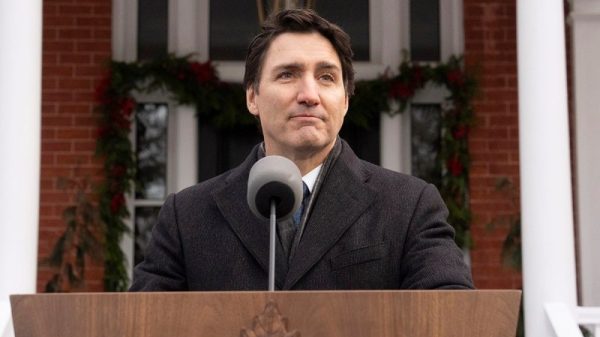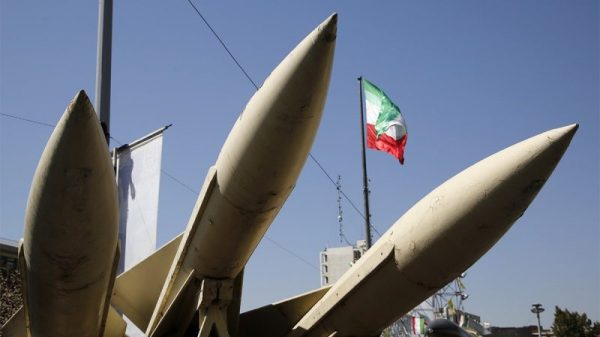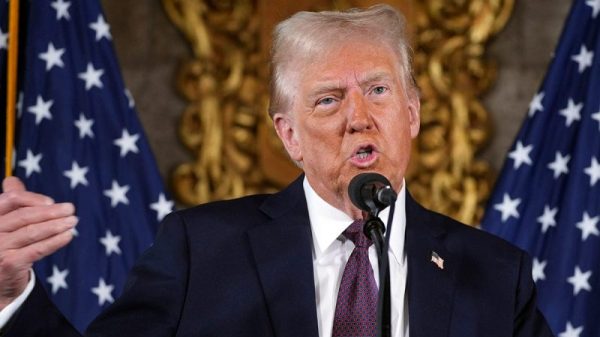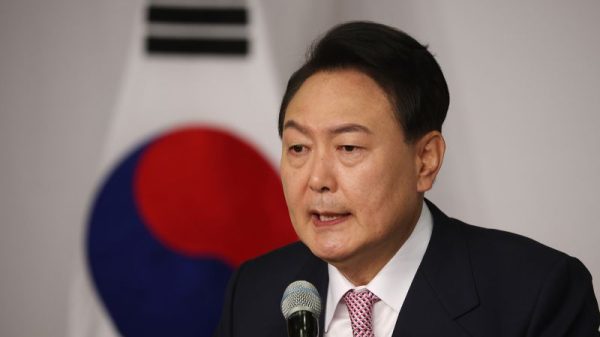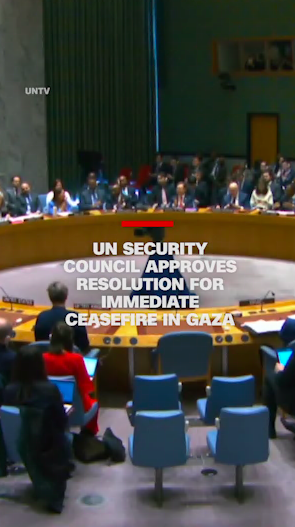Following several failed attempts over five months of Israel’s devastating war in Gaza, the United Nations Security Council on Monday finally passed a resolution calling for an immediate ceasefire. The United States, which had been the only remaining hurdle to such a call, decided not to strike down the resolution.
The vote came as a shock to Israel, which saw its decades-old US ally abstain rather than veto the move, as it has consistently done over the years in its diplomatic backing of the Jewish state. Israeli officials lambasted the resolution, saying they have no intention of ceasing fire.
More than 32,000 people have been killed in Gaza in operations Israel launched after Hamas-led militants attacked the country on October 7, killing 1,200 people and taking 250 hostages.
Israel criticized the language of the resolution, saying it doesn’t firmly tie a ceasefire to the freeing of the hostages held in Gaza. The resolution demands “an immediate ceasefire… and also demands the immediate and unconditional release of all hostages.” A failed resolution proposed by the US last week demanded a ceasefire that was directly tied to releasing the hostages.
While the US says the latest resolution is non-binding, experts differ on whether that is the case. The key is in the language of the document, they say.
Here’s what we know:
Will the resolution have an impact on the ground in Gaza?
Israel has reacted angrily to the resolution, saying it has no intention of abiding by it. On Tuesday, Israeli attacks on Gaza continued.
Israeli Ambassador to the United Nations Gilad Erdan criticized the Security Council for passing a measure that called for a ceasefire “without conditioning it on the release of the hostages.”
“It undermines the efforts to secure their release,” he said at the United Nations.
Foreign Minister Israel Katz meanwhile said on X that his country would not abide by the resolution.
“The state of Israel will not cease fire,” Katz said. “We will destroy Hamas and continue to fight until the last of the hostages returns home.”
Israeli Prime Minister Benjamin Netanyahu retaliated for the US abstention by canceling a scheduled trip to the US by two of his top advisers. Israeli national security adviser Tzachi Hanegbi and Ron Dermer, a member of the war cabinet, had been scheduled to travel to Washington Monday night to discuss alternatives to a planned Israeli offensive in the southern Gaza city of Rafah. The meeting had been requested by US President Joe Biden.
“On the ground right now… I think there is no immediate effect,” said Gabriela Shalev, a former Israeli ambassador to the UN and an emeritus professor at the Hebrew University’s faculty of law. “But of course it has a moral and a general effect.”
Is the resolution binding on Israel?
After the resolution passed, US officials went to great lengths to say that the resolution isn’t binding. State Department spokesperson Matthew Miller repeatedly said during a news conference that the resolution is non-binding, before conceding that the technical details of are for international lawyers to determine.
Similarly, White House National Security Council spokesman John Kirby and US ambassador to the UN Linda Thomas-Greenfield separately insisted that the resolution is non-binding.
After the resolution passed, China’s UN ambassador Zhang Jun countered that such resolutions are indeed binding. Deputy UN spokesperson Farhan Haq said Security Council resolutions are international law, “so to that extent they are as binding as international law is.”
Experts say whether a resolution is binding depends on the language used, as ambiguous language leaves room for interpretation. In this case, there have been differing opinions on whether the resolution falls under Chapter VI of the UN charter (deeming it non-binding) or Chapter VII (binding). This resolution “demands” a ceasefire.
“The US – ascribing to a legal tradition that takes a narrower interpretation – argues that without the use of the word “decides” or evocation of Chapter VII within the text, the resolution is non-binding,” said Maya Ungar, an analyst monitoring UN Security Council developments at the International Crisis Group (ICG), a Brussels-based think tank. “Other member states and international legal scholars are arguing that there is legal precedence to the idea that a demand is implicitly a decision of the council.”
“The crux of the issue is language of the resolution and the way that member states are interpreting the charter differently,” she added.
“The US is attempting to walk a fine line between criticizing and supporting Israel,” Ungar said. “By arguing that the resolution is non-binding, it seems that the US made a calculation that they could make a public statement by not vetoing without facing too much Israeli backlash.”
Even if legal experts decide the resolution is binding, a question remains on how and who can enforce it, said Yossi Mekelberg, an associate fellow with the Middle East and North Africa program at the Chatham House think tank in London.
Does the resolution leave Israel isolated on the world stage?
Israel’s Western allies, particularly the US, have long protected it from censure at the UN. Their support was in full display soon after the October 7 Hamas-led massacre, when many countries stood by Israel at the Security Council and the UN General Assembly. But as the war in Gaza dragged on and the death toll there mounted, that backing began to dwindle, even from some of Israel’s most committed allies, leaving the US as its sole backer at the UN for the past few months. Until Monday’s vote.
“They are not fully isolating Israel – their arguments about the non-binding nature makes that clear,” said Ungar of the ICG. “But this is the farthest from Israeli policy that the US has been willing to go thus far at the United Nations.”
Shalev, the former Israeli ambassador, said that by abstaining, the US took a “middle way,” but one that shows the extent to which the White House is “very worried and concerned about what is happening.”
Biden administration officials have come to believe that Israel risks becoming an international pariah if the humanitarian crisis in Gaza worsens or persists for an extended period of time.
Israel has faced intense criticism internationally, with calls from US politicians and European officials to reconsider arms sales to it in the face of the enormous civilian death toll in Gaza.
Relations with the Biden administration have been going downhill as Israel vows to press on with a potential invasion of Rafah, where 1.4 million Palestinians are sheltering. The US has warned against such a move, even as officials insist on Washington’s commitment to Israel’s security.
Vice President Kamala Harris said last weekend that the invasion would be a “mistake” and refused to rule out consequences for Israel should it go ahead.
Netanyahu’s decision to cancel official meetings in Washington in protest of the US’ abstention has left American officials perplexed. Kirby said the US was “very disappointed that they will not be coming” but insisted that the abstention was not a shift in US policy towards Israel.
“He is picking a fight with Washington, at the worst time that any Israeli prime minister can pick a fight with Washington,” Mekelberg said.
Despite the Israeli snub elsewhere, Israel’s Defense Minister Yoav Gallant flew to Washington on Tuesday to present US Defense Secretary Lloyd Austin with a wishlist of US weapons and equipment that Israel wants to buy and have delivered in an expedited manner.
Shalev said Israel was facing “a very low point in our relations with the US,” noting that while tension exists on a governmental level, most of the people of Israel want ties to improve.
In the past, the US wouldn’t even let such resolutions come to a vote, she said. “(This time) the US wanted to confirm its view regarding the humanitarian aspects of Israel’s actions on the ground in Gaza, as well as regarding the unconditional release of all hostages.”











